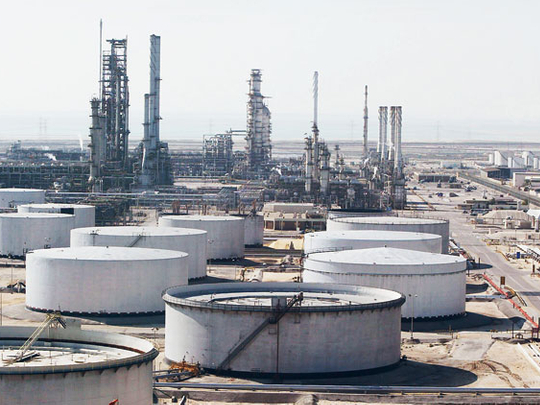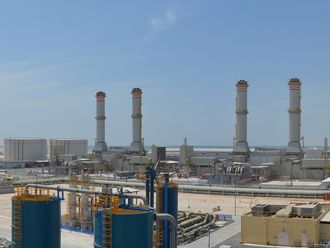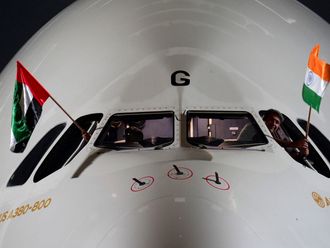
New York: The biggest US petroleum stockpiles in two decades are leading oil bears to predict further price declines that may lead Opec to restrict production.
Inventories of oil and fuel products rose to 1.13 billion barrels last week, the highest level since the Energy Department began keeping combined weekly data in January 1990, according to a report August 18. Oil has fallen 9.9 per cent since reaching a three-month high on August 3.
The US economy is showing increasing signs of slowing growth, and demand for fuel products has declined six per cent to 19.7 million barrels a day since the recession began in December 2007, according to the Energy Department.
With predictions that oil will fall below $70 (Dh257) a barrel, there is growing pressure on the Organisation of Petroleum Exporting Countries, the 12-nation group that pumps 40 per cent of the world's crude, to stick to their production quotas.
"Stocks are high and that is bearish," said Mike Wittner, who heads oil research at Societe Generale SA. "If prices go significantly below $70 with some momentum and stay there, then they take action. Somewhere in the $60 to $70 range is where they would start cutting real production."
Crude hasn't traded below $70 since June 7, when it fell as low as $69.51 a barrel. Oil for September delivery fell as much as 0.4 per cent to $74.16 today in electronic trading on the New York Mercantile Exchange, extending this week's decline to 1.6 per cent.
Oil may fall below $70 a barrel in coming months, according to Michael Lynch, president of Strategic and Economic Research in Winchester, Massachusetts. The declines may prompt Opec to clamp down on members exceeding their quotas, said Harry Tchilinguirian, head of commodity markets strategy at BNP Paribas SA in London. US crude stockpiles fell 818,000 barrels to 354.2 million barrels last week, the Energy Department report showed. Supplies were forecast to drop by one million barrels, according to a Bloomberg survey. Gasoline inventories slid 39,000 barrels to 223.3 million, versus the 375,000-barrel decline that was predicted.
Petronet in liquefied gas talks
Petronet LNG Ltd said yesterday it is in talks with Qatar's Ras Laffan Liquefied Natural Gas Co. to buy a spot cargo of liquefied natural gas as a production suspension at India's Panna-Mukta fields has led to a local supply shortfall.
"We are working on with RasGas," Petronet LNG Chief Executive Ashok Balyan told reporters on the sidelines of an industry conference. "We will be able to finalise [the cargo deal] by the end of the month."
Balyan had on August 10 said Petronet LNG's first spot cargo in 2010 will likely reach its terminal in Gujarat by August 20, but hadn't revealed the source of the cargo. Yesterday he didn't say why the cargo was delayed.












